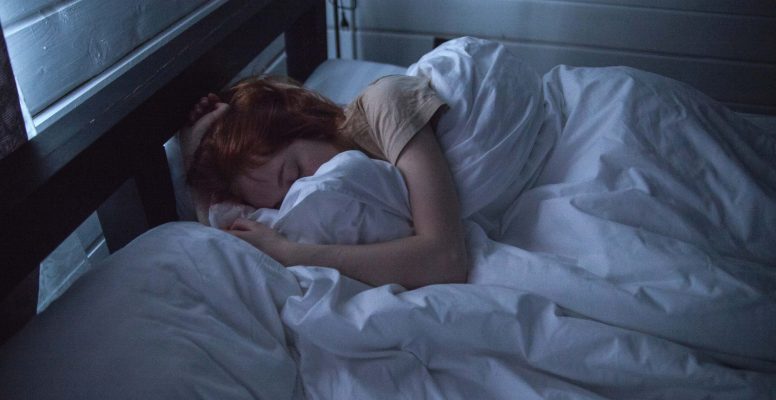
Sleep Hygiene
Written By: Andrea Delariyala, Program Coordinator at ACS, On-Campus Counseling Program
A good night’s sleep
is important for all of us, but can be particularly crucial for teens since their bodies and brains are going through significant development. Teens typically need between 8-10 hours of sleep a night, and for most teens, 9 hours is ideal. However, most teens get fewer than 8 hours of sleep, and only around 25 percent of high schoolers get the necessary amount of sleep each night. This lack of sleep can have an impact on physical health, mental health and mood, academic achievement, development, behavior, and also increase the likelihood of illness and injury. Some of the contributing factors to this lack of adequate sleep are normal biological delay in the adolescent sleep cycle, early school start times, and increased social and school-related demands on time.
Lack of sleep can contribute to and be an indicator of mood-related disorders such as depression and anxiety. There has also been research indicating that insufficient sleep is a contributor to increased suicidal ideation. Treating insomnia and sleep disturbances can have a positive impact on mood in general. Less sleep can also have significant effects on a teen’s ability to make safe decisions and is a major contributor to vehicle accidents.
Building a healthy sleep routine and having good sleep hygiene can be vital to helping teens be at their best. Starting and getting used to a consistent sleep schedule can seem a bit difficult at first, but with consistency and patience, you can shift your sleep routine to one that is conducive to getting a full night’s sleep. Here are a few tips for parents and their teens that can help build good sleeping habits.
Do:
- Use your bed for sleeping only (not for homework or other activities).
- Keep the bedroom dark, cool, and quiet. Make sure you have a comfortable mattress and good pillow.
- Exercise earlier in the day (but not within 2-3 hours before going to bed). Getting at least 30 minutes to 1 hour of exercise in a day can help the body get to sleep better at night.
- Engage in a calming activity or “wind down” routine. You can listen to calming music, do light yoga or stretching, deep breathing, reading, or sip on something warm and calming before bed. It’s also a good idea to turn down the lights and utilize dim lighting during this time.
- Go outside in sun in the morning. This can help the body maintain its internal clock.
- Have a journal or pencil and paper to jot down worries or to-do items. This can help you set aside worries so they aren’t keeping you awake at night.
Avoid:
- Drinking a large amount of caffeine or drinking caffeine later in the day (within 6 hours of when you would go to bed).
- Screen time (phones, tv, computers) and bright lights right before bed. Stop use a couple hours before bed. If possible, use apps and device settings to dim to limit blue light emitted by the device.
- Taking a nap later in the day (within 5 hours of when you would usually go to bed) or napping for longer than 30 minutes
- Watching the time or actively worrying about not getting to sleep. This can keep you up longer and make it more likely for you to be anxious and experience insomnia. Try reassuring yourself throughout the day and before bed that you will have a restful night’s sleep.
- Eating too much or being hungry before bed (a light snack is okay).
While it might take a bit of time to make this a routine, it is important to have a consistent time at which your teen is going to bed and waking up, even on weekends. If a teen wants to sleep in it should be no more than 2 hours later than when they get up or go to bed during the week. Some ways parents can help their teen is by reminding them of their sleep schedule, advocating for later school start times, and helping a teen notice when they are committing to too many activities and obligations than they realistically have time for.
References:
Gavin, M. L. (Ed.). (2020, June). 5 ideas for better sleep (for teens). KidsHealth. Retrieved January 10, 2022, from https://kidshealth.org/en/teens/tips-sleep.html
NHS. (2020, November 27). Sleep tips for teenagers. NHS choices. Retrieved January 10, 2022, from https://www.nhs.uk/live-well/sleep-and-tiredness/sleep-tips-for-teenagers/
Owens, J., Adolescent Sleep Working Group, Committee on Adolescence, Au, R., Carskadon, M., Millman, R., Wolfson, A., Braverman, P. K., Adelman, W.P., Breuner, C. C., Levine, D.A., Marcell, A. V., Murray, P. J., & O’Brien, R. F. (2014) Insufficient sleep in adolescents and young adults: An update on causes and consequences. Pediatrics, 134(3), e921–e932. https://doi.org/10.1542/peds.2014-1696
Reese, J. (2018, August 13). Teens and sleep hygiene. Teens and Sleep Hygiene – Johns Hopkins All Children’s Hospital. Retrieved January 10, 2022, from https://www.hopkinsallchildrens.org/ACH-News/General-News/Teens-and-Sleep-Hygiene
Revana, A., Bruzzese, J.-M., & Sockrider, M. (2021, August). Healthy sleep in teens. Healthy sleep in teens – American Thoracic Society. Retrieved January 10, 2022, from https://www.thoracic.org/patients/patient-resources/resources/healthy-sleep-in-teens.pdf
Sleep tips for teens. University of Washington. (n.d.). Retrieved January 10, 2022, from https://depts.washington.edu/uwhatc/PDF/TF-%20CBT/pages/4%20Coping%20Skills/Sleep/Sleep%20Tips%20for%20Teens.pdf
Sleep hygiene teen handout. choc. (n.d.). Retrieved January 10, 2022, from https://www.choc.org/wp/wp-content/uploads/2016/04/Sleep-Hygiene-Teen-Handout.pdf
Suni, E. (2021, November 22). Teens and sleep. Sleep Foundation. Retrieved January 10, 2022, from https://www.sleepfoundation.org/teens-and-sleep
